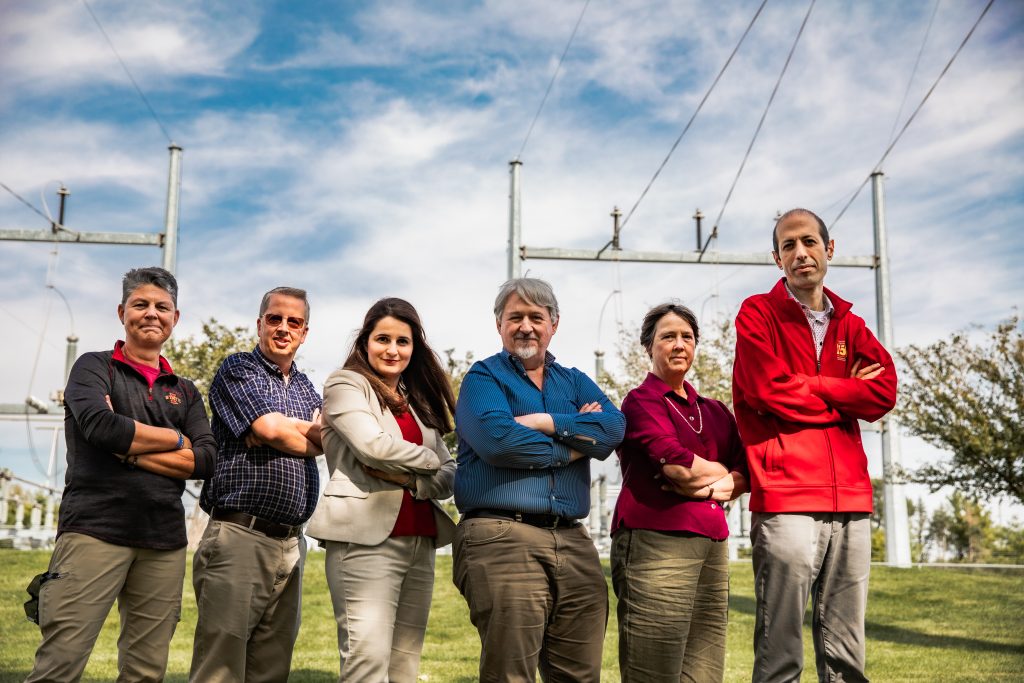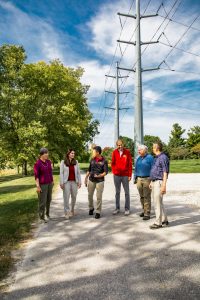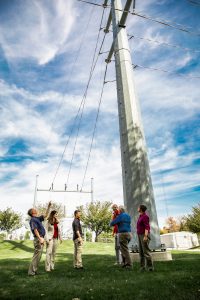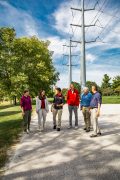
After incurring the most extensive damage to the electric power network in Iowa’s recorded history, the derecho of 2020 is often referred to as a “wake-up call” for electric power utilities.
This wake-up call inspired Alice Alipour, an associate professor in the Department of Civil, Construction and Environmental Engineering (CCEE) to question what resources utilities around Iowa may require, especially to serve rural communities.
Alipour recently received stage one of a two-stage grant to develop a digital infrastructure tool that can support electrical infrastructure, titled “Electric Network Disaster Mitigation for Utilities in Rural Environment (ENDURE).” This grant is a part of the CIVIC Innovation Challenge, funded by National Science Foundation in collaboration with the Department of Homeland Security’s Science and Technology Directorate and the Federal Emergency Management Agency. The CIVIC Innovation Challenge works to “lay the foundation for a broader and more fluid exchange of research.”
While Alipour, the principal investigator for the project, is housed in CCEE, the grant involves collaboration all across the university. Alipour is working with fellow CCEE faculty associate professor Behrouz Shafei, Department of Electrical and Computer Engineering professor Ian Dobson, EPRC director Anne Kimber, Department of Geological and Atmospheric Sciences professor William Gallus and GIS Facility Manager Robin McNeely on the project.
“The derecho of 2020 resulted in long and widespread outages that adversely impacted many Iowans, especially those from vulnerable and low-income communities. After the derecho, we started to talk with different rural utilities and discuss their perspectives on the extent of damage and potential solutions,” Alipour said. “One of the main questions for utilities was whether they had access to planning tools required to assess the risk of failure considering hazards in Iowa. Many simply did not.”
To address this need, the team is now working to develop a holistic framework that will assess the resiliency of the power infrastructure, while capturing the changing climate. This framework will have a dynamic nature, as it will be able to update predictions as new information becomes available.
“We are developing an open-source tool in support of the developed framework to help rural utilities integrate their region-specific information, in terms of their physical assets and network characteristics as well as region-specific climatic hazards and power network model to assess the risk of events,” Alipour said.
“With this interdisciplinary research, which will cover both component and system-level aspects, we will be able to not only address the immediate needs of utilities but also improve the quality of life of Iowans,” Shafei said.
“This tool should benefit rural communities and their power providers, by providing a method to compare the resilience benefits of competing infrastructure investment options. We hope these comparisons will lead to solutions that lower infrastructure costs for both the provider and the ultimate user, the customer, of these power networks,” Kimber said.
With so much collaboration, the team brings a unique interdisciplinary nature to the project. “I look forward to working with our strong interdisciplinary team to quantify electric grid resilience for a rural Iowa community,” Dobson said.
According to Gallus, understanding climate change impacts on weather events is a more dire need than ever. “Because we know that the warming climate can change the intensity and frequency of some extreme weather events, it is important for us to study climate change impacts on weather events that will affect rural utilities, and to provide this information to them so that they can better prepare for the future,” Gallus said.
“Using GIS technology to assist Iowa utilities with their asset status and management will help them plan for future disasters and share updated information with their customers,” said McNeely.
The outcome of this research grant will directly contribute to enhancing the resilience of electric power networks. Recognizing climate change effects and their consequences, in terms of frequency and magnitude of extreme events, enhances this grant’s ultimate goal is to assist communities in Iowa and beyond to benefit from a more reliable and resilient power system.
